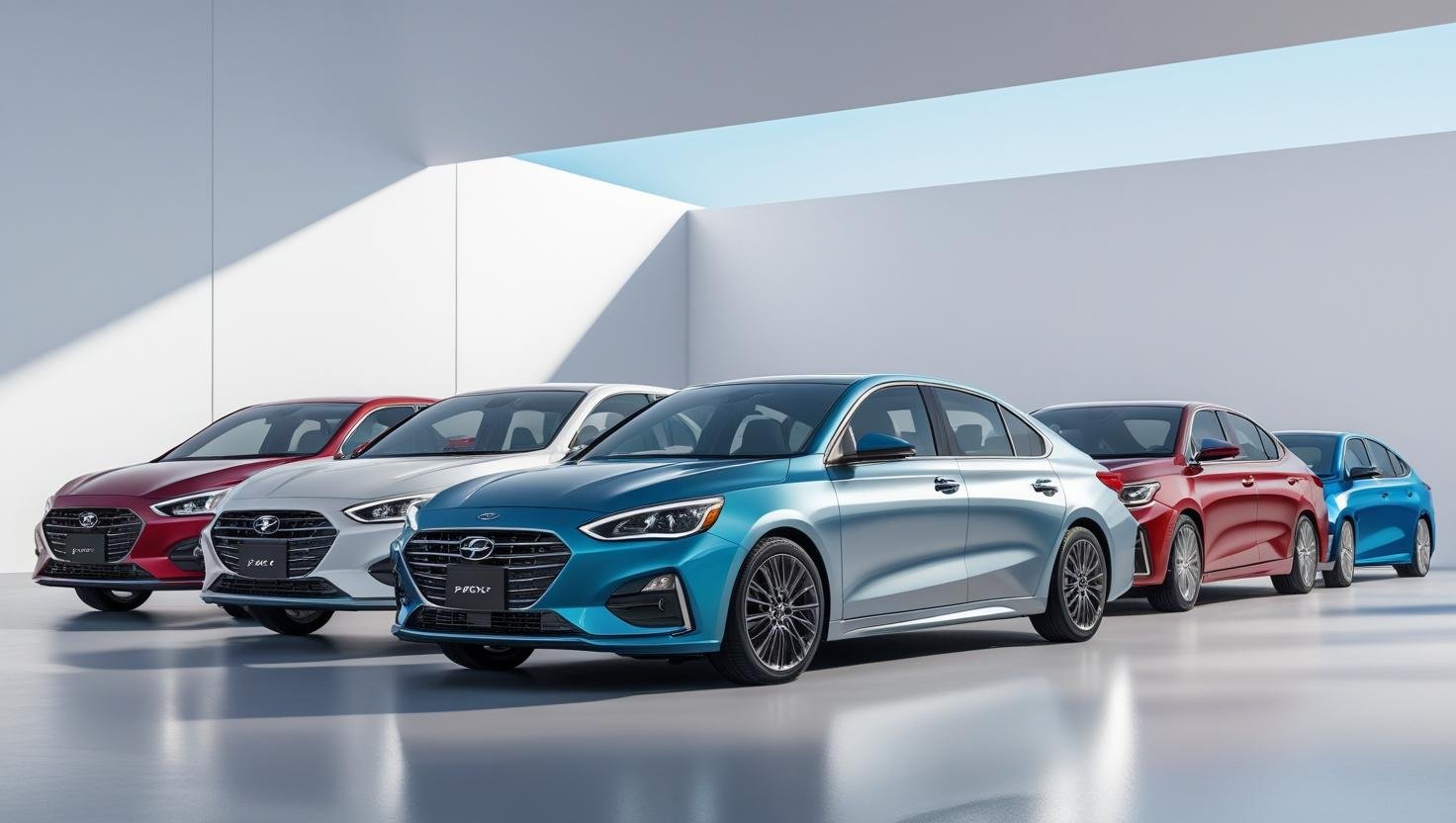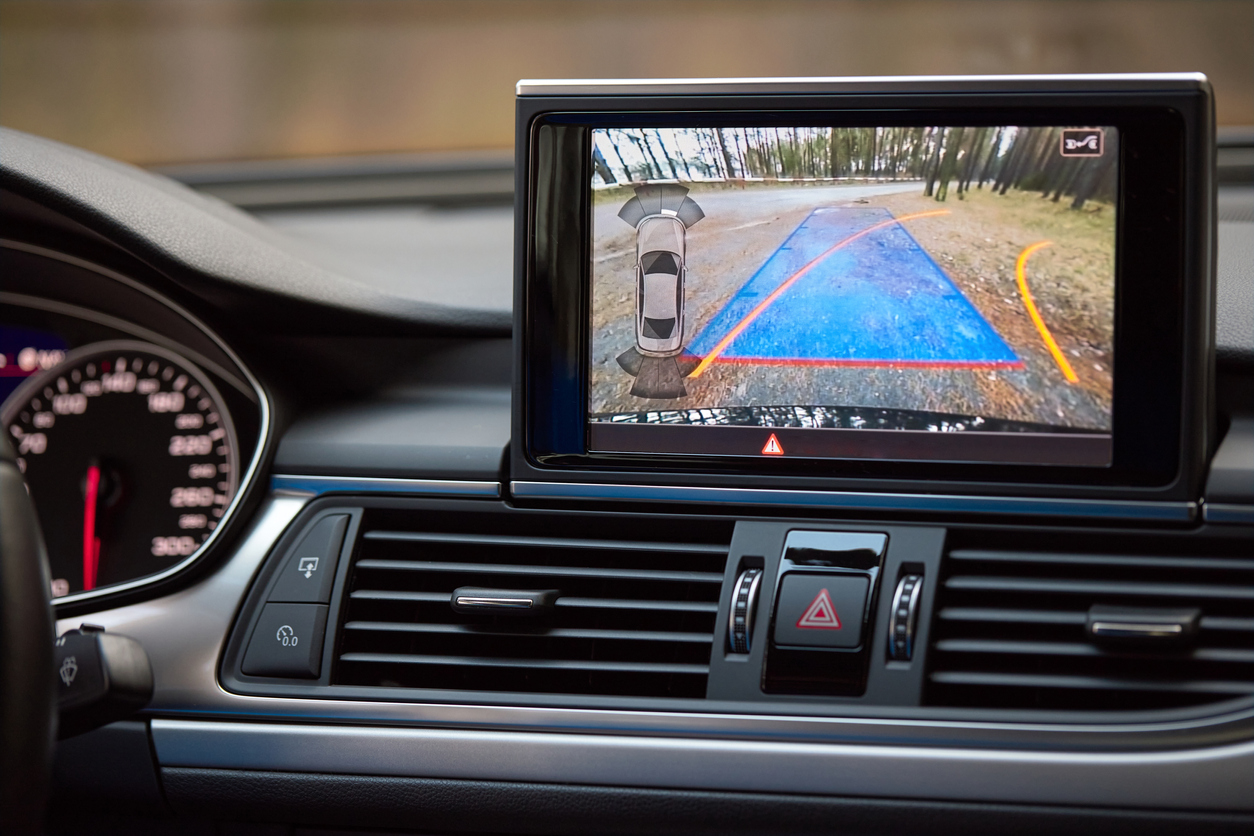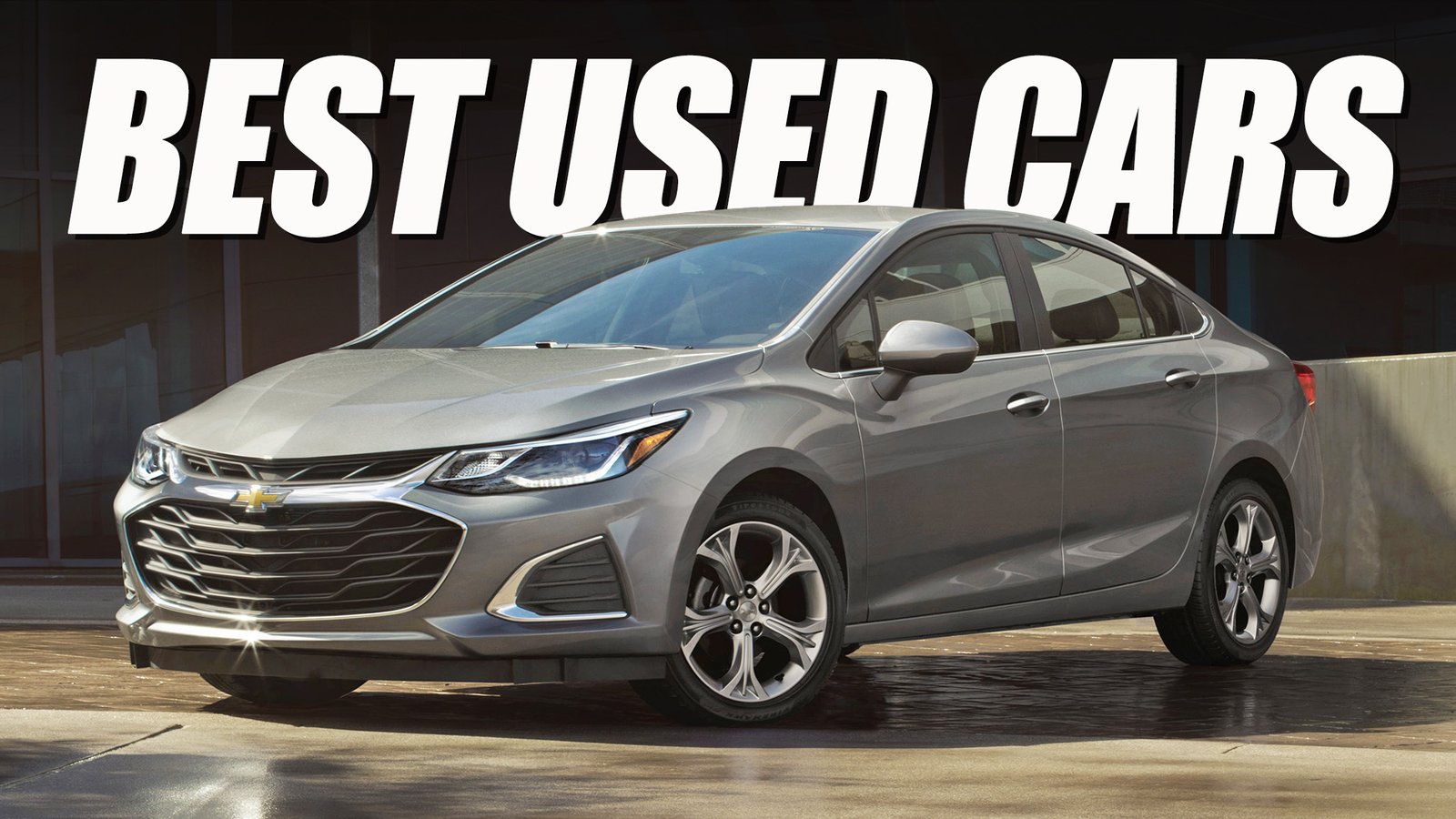A sedan that stays out of the shop protects a family’s budget and peace of mind. Owner data from 2015‑2020 puts Japanese badges, Lexus, Toyota, Honda, and Mazda, at the top of the list. This guide draws on thousands of real repair reports and expert audits, so every claim rests on hard numbers, not guesswork.
Why Focus on 2015‑2020 Sedans?

Need a car that feels modern yet stays affordable? Sedans from these six model years hit that sweet spot. Prices dip after the first big drop in depreciation, but engines, gearboxes, and safety suites still match current standards. Lane keep alerts, forward collision sensors, and Apple CarPlay appear on many trims. Plus, five to ten years of road history gives analysts enough data to judge long term durability. In short, these cars balance cost, tech, and proven staying power.
Top 10 Most Reliable Brands (2015‑2020)
| Rank | Brand | Reliability Score* |
| 1 | Lexus | 81 |
| 2 | Toyota | 74 |
| 3 | Mazda | 63 |
| 4 | Honda | 56 |
| 5 | Acura | 55 |
| 6 | Buick | 53 |
| 7 | Volvo | 49 |
| 8 | Nissan | 49 |
| 9 | Subaru | 48 |
| 10 | Cadillac | 48 |
Scores reflect owner‑reported faults per 100 vehicles; higher numbers mean fewer breakdowns.
Most Reliable Used Sedan Models: Deep Dive
Let’s dig into the real stars, sedans that didn’t just carry their brands but proved themselves year after year. These models blend long-term value with daily dependability. Which one could be your perfect fit?
1 Lexus ES
The Lexus ES wins top marks in almost every reliability survey. J.D. Power often ranks it the most dependable sedan in its class. The 3.5L V6 and 2.5L hybrid engines both offer smooth performance without complex maintenance headaches.
This sedan delivers quiet rides, plush interiors, and rock-solid electronics. Most owners report fewer-than-average repairs and low annual costs. Many ES models easily cross 200,000 miles without major issues. If you want luxury without luxury-level repair bills, this one’s hard to beat.
2 Toyota Camry

Need something safe, efficient, and built to last? The Toyota Camry fits the bill. It earned a 4.5 out of 5 for reliability in 2018 from J.D. Power and continues to rank high in real-world surveys.
Standard features include Toyota Safety Sense, Smart Stop Technology, and Traction Control. Camrys commonly exceed 250,000 miles with regular oil changes and basic service. Want proof of value? Check any highway, Camrys never disappear.
3 Honda Accord
The Accord mixes reliability with sporty driving. Honda’s engines rarely quit early, and some even top 300,000 miles with factory parts still inside. The 2015 model earned a 5-star safety rating from NHTSA.
Standard tech includes Forward Collision Warning, Lane Departure Alert, and a rearview camera. Owners praise its low repair costs and high resale value. If you want peace of mind with a little driving fun, the Accord does both.
4 Toyota Avalon
The Avalon brings comfort into the equation. Its spacious cabin and soft suspension turn long drives into naps. But it’s not just a couch on wheels, it’s reliable too.
Most Avalons reach 200,000 miles without breaking a sweat. Many trims include advanced safety features, leather interiors, and navigation. You get Lexus-like smoothness without the premium badge, or the premium price tag.
5 Mazda6

Here’s one for drivers who still enjoy corners. The Mazda6 feels athletic, yet it shows up on reliability charts year after year. Models from 2016–2019 earned strong ratings from both owners and reviewers.
Mazda built the 6 with quality components and clean design. Common features include Blind Spot Monitoring, rear cross-traffic alert, and a fuel-efficient Skyactiv engine. Mileage often stretches past 200,000, especially with careful maintenance.
6 Subaru Impreza
Need traction for rough roads or snowy mornings? The Impreza offers standard all-wheel drive and decent reliability. That combo makes it a top pick in northern states and mountain regions.
While Subarus need regular oil checks, many owners drive theirs past 180,000 miles. The Impreza includes safety tech like EyeSight, lane assist, and adaptive cruise. If you live where winters bite hard, this one makes a lot of sense.
7 Hyundai Sonata

The Sonata blends value, reliability, and surprising features. Even base trims come with touchscreen displays, Bluetooth, and backup cameras.
Hyundai’s engine and transmission design matured during this era, and repair rates dropped. Owners report few major problems, especially in 2017 and 2018 models. Mileage expectancy usually falls around 180,000 to 200,000 miles. For budget-focused buyers, the Sonata holds up well without cutting corners.
Key Reliability Statistics & Owner Insights
Let’s zoom out. What do the numbers say across the board? Analysts reviewed over 150,000 vehicles from the 2015–2020 model years. Here’s what they found:
- Owner-Reported Issues: About 26.5% of used sedans had at least one problem in the last two years.
- Repair Costs: Most fixes cost under $500. Only 6.5% of owners reported repair bills above $1,500.
- Time Off the Road: 20.5% of vehicles with issues couldn’t drive until repairs were done. 23.4% stayed in the shop for over a week.
Want a shortcut? Stick with models that land under the 20% breakdown rate and average less than $500 in repairs. That’s where the long-term savings live.
Infographic idea:
Chart titled “Repair Rate vs. Cost (2015–2020 Used Sedans)”
- Y-axis: % of owners with repair costs over $1,500
- X-axis: Vehicle model
- Highlight: Lexus ES, Toyota Camry, and Honda Accord on the low-cost end
Luxury vs. Mainstream Reliability

Is luxury worth it when buying used? Depends what you expect. The Lexus ES and Acura RLX prove that not all premium sedans carry scary maintenance bills. They compete toe-to-toe with their mainstream siblings, like the Camry and Accord, in long-term durability.
Luxury cars often pack more tech, and more things that can fail. Touchscreens, air suspensions, and advanced drivetrains may cost more to fix. Want comfort with fewer surprises? A loaded Camry or Avalon might strike the perfect balance.
So, what’s your priority, peace of mind or plush seats? Either way, the right model already made its mark between 2015 and 2020.
Total Cost of Ownership
Reliability doesn’t stop at the engine. A sedan that runs well but drains your wallet in fuel, insurance, or repair bills doesn’t offer real value. So, which models stretch your dollar over five years?
- Maintenance Costs: Lexus ES and Toyota Camry stay on the low end. Routine service rarely crosses $400 per year.
- Fuel Efficiency: The Honda Accord and Mazda6 offer top mileage, often hitting 30+ mpg combined.
- Insurance Rates: Camry and Sonata keep premiums down. Insurers rate them as low-risk, thanks to strong safety records.
- Parts Availability: Toyota, Honda, and Hyundai parts flood the market, which keeps labor time and prices down.
Over five years, the Toyota Camry and Honda Accord give you the best balance of cost, reliability, and comfort. Want luxury? The Lexus ES keeps long-term costs surprisingly low for a premium model.
Safety and Tech Features to Look For

The 2015–2020 era marked a turning point. Advanced driver assistance systems (ADAS) started to show up even in non-luxury trims. So, what should you expect, and what should you demand?
- Collision Warning: Most Toyota, Honda, and Subaru sedans include this from 2017 onward, even in base trims.
- Lane-Keeping Assist: Common in Mazda6 Touring and above, Camry SE and XLE, and higher Accord trims.
- Adaptive Cruise Control: Appears in many 2018–2020 models, especially from Toyota and Honda.
Want a car that watches the road with you? Go for a Toyota with Safety Sense, or a Subaru with EyeSight. These features reduce accidents and help lower insurance costs, too.
Used Car Buying Tips
Even a top-rated sedan can let you down if you skip key checks. Here’s how smart buyers avoid bad deals:
- Check for Recalls: Use the VIN to search NHTSA’s recall database. Some models had airbag or brake recalls.
- Ask for Service Records: A clean oil change history tells you the car had a careful owner.
- Get a Pre-Purchase Inspection (PPI): A mechanic can spot hidden rust, leaks, or worn brakes before you commit.
- Watch the Odometer: For most sedans, under 120,000 miles still leaves plenty of life.
- Compare CPO vs. Private Sales: Certified Pre-Owned cars cost more but offer warranty protection and dealer inspections. Private sales run cheaper, but carry more risk.
Buying smart saves thousands down the road. Never skip a test drive, and never rush the paperwork.
Conclusion
If you want a sedan that lasts, stay close to Japanese brands. The Lexus ES, Toyota Camry, and Honda Accord top the list for long-term reliability and low ownership costs. The Mazda6 and Toyota Avalon add comfort and fun without losing dependability.
Why do these models dominate? They combine simple engineering, proven track records, and easy-to-source parts. That’s what makes them smart picks for real-world drivers.
One final tip? Always check reviews tied to specific model years. Even reliable cars can have one bad year, so spend ten minutes on research, and save yourself ten months of regret.
FAQs
- What is the most reliable used sedan between 2015 and 2020?
The Lexus ES consistently ranks as the most reliable sedan from 2015 to 2020. It scores highest in owner satisfaction, has low repair costs, and often exceeds 200,000 miles without major issues. - Which used sedan lasts the longest?
The Honda Accord and Toyota Camry often reach 250,000 to 300,000 miles with regular maintenance. These models use durable engines and simple drivetrains, which boost long-term reliability. - Are Japanese sedans more reliable than American ones?
Yes, Japanese brands like Toyota, Honda, and Mazda dominate reliability rankings from 2015 to 2020. They report fewer problems per 100 vehicles than American and European counterparts. - What used sedan has the lowest maintenance costs?
The Toyota Camry and Lexus ES offer the lowest maintenance costs in their class. Annual repair expenses for these models usually stay under $400 with basic upkeep. - What safety features should I look for in a 2015–2020 sedan?
Focus on models with lane-keeping assist, forward collision warning, and adaptive cruise control. These features appear in most 2017–2020 Toyota, Honda, Subaru, and Mazda sedans. - Is it worth buying a used luxury sedan like the Lexus ES?
Yes, the Lexus ES offers luxury comfort with mainstream reliability. It avoids the high repair costs found in many European luxury models and remains a top choice for long-term ownership. - How many miles is too much for a used sedan?
Avoid sedans with over 150,000 miles unless they come with full service records and a clean inspection report. Most top-rated models perform well up to 200,000 miles or more if maintained properly. - Which 2015–2020 sedans are cheapest to insure?
The Hyundai Sonata, Toyota Camry, and Honda Accord typically carry lower insurance premiums. Insurers favor these models due to strong crash-test ratings and lower claim rates. - What is the best used midsize sedan for the money?
The Mazda6 strikes a strong balance between driving enjoyment and long-term reliability. It’s often overlooked, but it delivers high value in both resale and performance. - Should I buy a Certified Pre-Owned (CPO) sedan or from a private seller?
If you want extra peace of mind, go for a Certified Pre-Owned (CPO) model. CPO sedans come with warranties and dealer inspections. Private sales cost less upfront but carry more risk.






